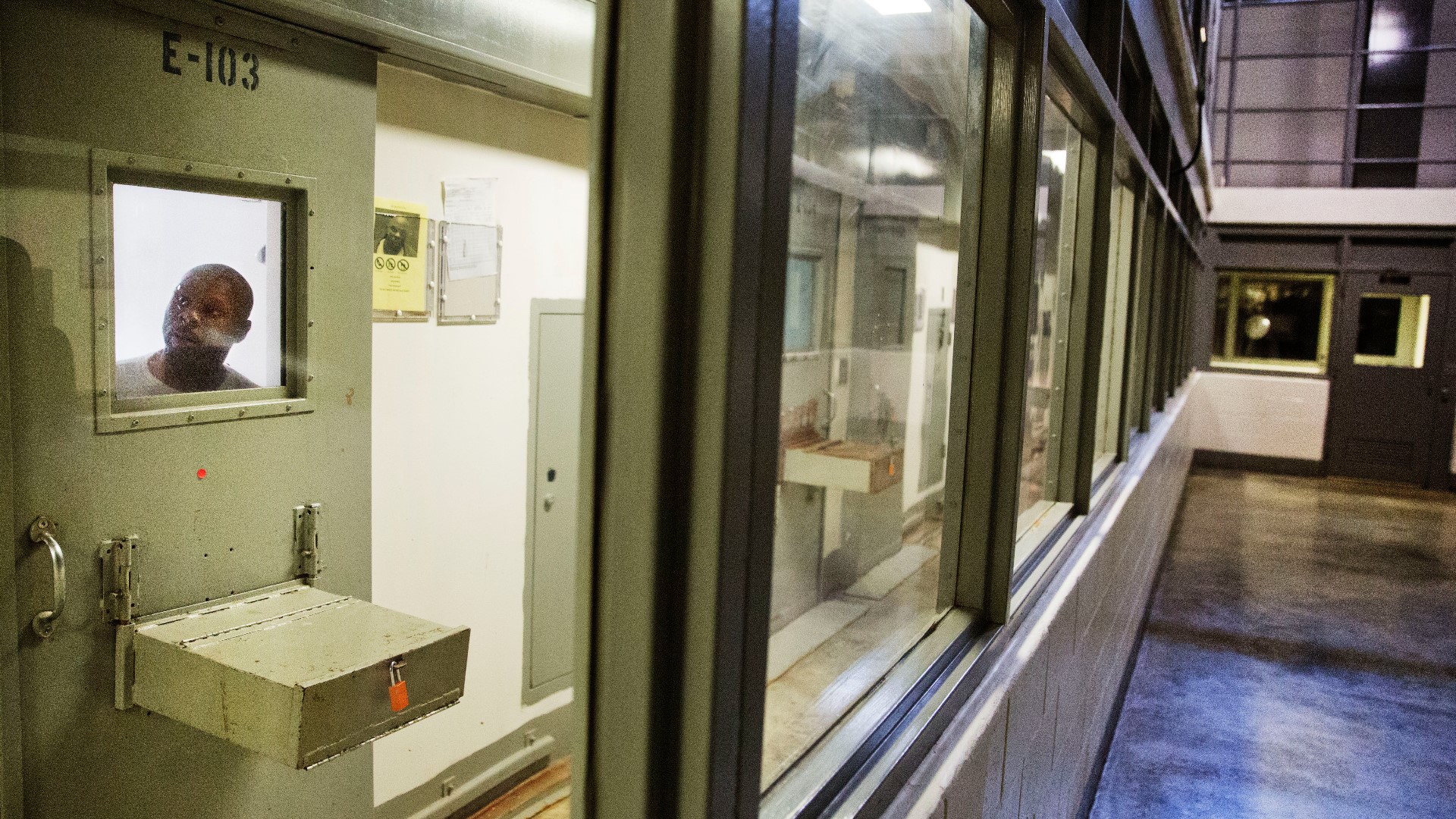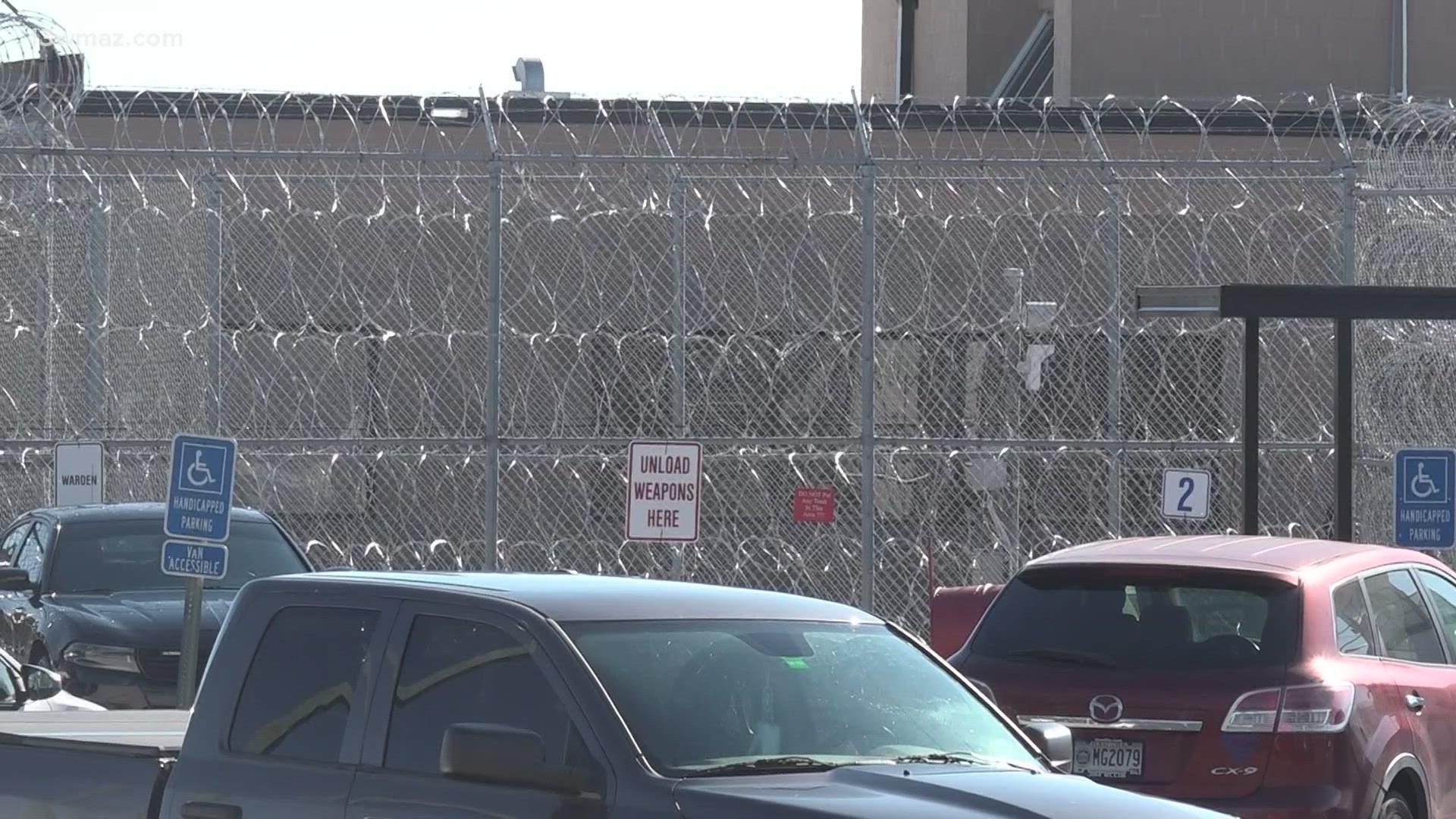Federal judge's order highlights repeated failures and problems in Georgia's 'harshest' prison
The judge found continual violations of an injunction the Department of Corrections agreed to back in 2019, and now, he’s forcing the department to pay the price.

The Georgia Department of Corrections is tasked with correcting the behavior of the criminals it holds behind its prison walls. However, according to a federal judge, the GDC couldn’t correct its own conduct and bring it in line with the constitution.
That assessment stems from a 2019 federal injunction ordering sweeping reforms in the GDC’s highest-level correction facility: the Special Management Unit in Jackson.
The SMU holds the system’s worst offenders, but according to the order, the facility was called by a psychologist “one of the harshest and most draconian” solitary confinement facilities in the U.S.
“As a group, they have done nothing to earn sympathy,” the order read. “They are, however, entitled to certain minimal conditions of confinement.”
In the 100-page order issued Friday, the Georgia Department of Corrections was held in contempt of court, with Chief U.S. District Judge Marc Treadwell determining they didn't follow the injunction they agreed to five years ago.
“During the initial three-year term of the injunction, the defendants violated every requirement of the Court’s injunction,” the order said. “The defendants asked the Court to extend the term for 18 months to give them a second chance. The court agreed.”
Even then, the GDC "routinely breached their obligations... even when the fix is easy," Treadwell notes.
The order of contempt outlines the department's repeated failure to document, correct and comply with the injunction, which Treadwell notes was “in place to correct constitutional violations.”
However, Treadwell also claimed the GDC was not being honest or making a good faith effort to follow the terms of the agreement.
“As the end of the injunction’s term neared, it became clear to the Court that the defendants, in effect, were running a four-corner offense and had no desire or intention to comply with the Court’s injunction,” Treadwell wrote. “The court can no longer tolerate the defendants’ misconduct.”
In an email, the GDC offered only this as a statement: “We will not be commenting on legal matters.”
‘Cocophy of prisoners screams' SMU's Constitutional Problem
A report from social psychologist, Craig Haney, was part of the lead-up to the injunction against the GDC, which was adopted in 2019.
Haney is considered “one of the foremost authorities on solitary confinement,” and in the SMU, inmates were held in their cells almost 24 hours day.
“In effect, as Dr. Haney put it, SMU inmates are ‘hermetically sealed’ in their cells,” Treadwell wrote in the order.
“When I entered the housing unit I was met with a cacophony of prisoners screams and cries for help,” Haney wrote. “The noise was deafening.”
According to Treadwell, inmates in the SMU “spend every moment locked inside a small space.”
When Haney visited the site, he met inmates who “were among the most psychologically traumatized” he has encountered.
Haney also said inmates had little to no instruction about how to get out of the SMU.
“In short, solitary confinement had become a final stop rather than an interim rehabilitative step,” Treadwell wrote.
It also found that over a third of inmates were suffering mental illness which, according to Haney, makes the situation worse.
“In Dr. Haney’s opinion, it is ‘dangerous’ to house mentally ill inmates in a solitary confinement setting,” Treadwell wrote. “There is no justification, he concluded for incarcerating such a high number of mentally ill inmates in the harsh conditions of the SMU.”
These facts ultimately led to the conclusion that the GDC was violating SMU inmate's constitutional rights, and the settlement agreement was written to hopefully bring conditions in line with the Constitution.
Terms of the injunction An agreement; false promises
The injunction's terms were geared towards fixing many of the issues Haney's report highlighted.
They included giving the inmates in the SMU many of the same rights as other inmates and adding due process requirements for inmates' admission and release from the SMU.
It also required inmates to receive four hours of time outside their cell per day, and they were required to offer two hours of programming a week for inmates.
Additionally, before being admitted to the SMU, the injunction requires hearings, advanced notice and the opportunity for the inmate to defend themselves.
The GDC also agreed to not hold inmates with mental illness in the unit. Because of that, they were required to offer mental health assessments before and during an inmate's time in SMU.
The settlement also limits the extended use of the SMU, limiting inmates' time in the facility to 24 months unless certain criteria were met and requiring clear guidelines for inmates to move out of the facility.
However, over the five years the order was in place, Treadwell outlines example after example of the GDC not following the injunction. In nearly every requirement listed in the settlement, the GDC did not comply with the order.
'Cavalier attitude' Failure to comply
Despite the GDC saying repeatedly the conditions of the injunction were being met, the attorneys for inmates offered evidence showing that was not true.
In a sense, Treadwell said the GDC was "thumbing their noses at the court."
Hearings rarely happened; inmates were repeatedly and systematically held for longer than 24 months; out-of-cell time was sparse and routinely canceled, and, despite being required to notify the inmates’ attorney when out-of-cell times were canceled, the GDC rarely did that, the order said.
Treadwell pointed to how nearly every inmate in the SMU was considered an “emergency transfer,” an exemption included in the settlement. But Treadwell said that was a "vague excuse."
“That cavalier attitude permeated the entire assignment and review process,” he wrote.
The GDC also never offered convincing evidence of inmates receiving legally mandated out-of-cell and programming time, Treadwell concluded. Many inmates were also being held beyond the 24-month limit.
While the GDC pointed to another exemption, Treadwell said that too was not in line with the law.
But Treadwell also accused the GDC of forging records. One employee, a behavior counselor named McBurnie, testified that they refused to sign a form because of it.
Treadwell said inmates also testified that they were told to sign forms but not date them. That way the GDC could allegedly “allow backdating so it would appear that a review hearing was timely held.”
The injunction was first issued in May 7, 2019, and it was set to expire three years to the day of the order being issued, expiring on May 7, 2022. It would then be extended two years, until May 19, 2024.
After hoping that the GDC would voluntarily make progress, the judge and the inmates’ attorneys quickly realized that was not happening.
‘Never provided evidence' Motion for contempt
In July 2023, the inmates' attorney announced they would move to have the U.S. Middle District of Georgia enforce the injunction.
They said the department failed to make a “good faith effort” to adhere to the injunction. Judge Treadwell agreed.
“Since the entry of the injunction, the defendants have never provided evidence that SMU inmates received or were offered 120 minutes of out-of-cell programming per week,” Treadwell wrote. “The plaintiffs, on the other hand, have again and again demonstrated that inmates are not receiving the out-of-cell programming required by the injunction.”
Treadwell ordered an independent monitor — paid for by the GDC — be appointed to oversee the execution of the injunction since internal measures didn't do the job.
He also issued a $2,500 fine to the Department of Corrections for each day the SMU is out of line with the injunction.
Treadwell also extended the settlement agreement six months after the independent monitor is put in place, giving the GDC another chance to fix the SMU and bring it in line with the injunction they agreed to five years ago.


